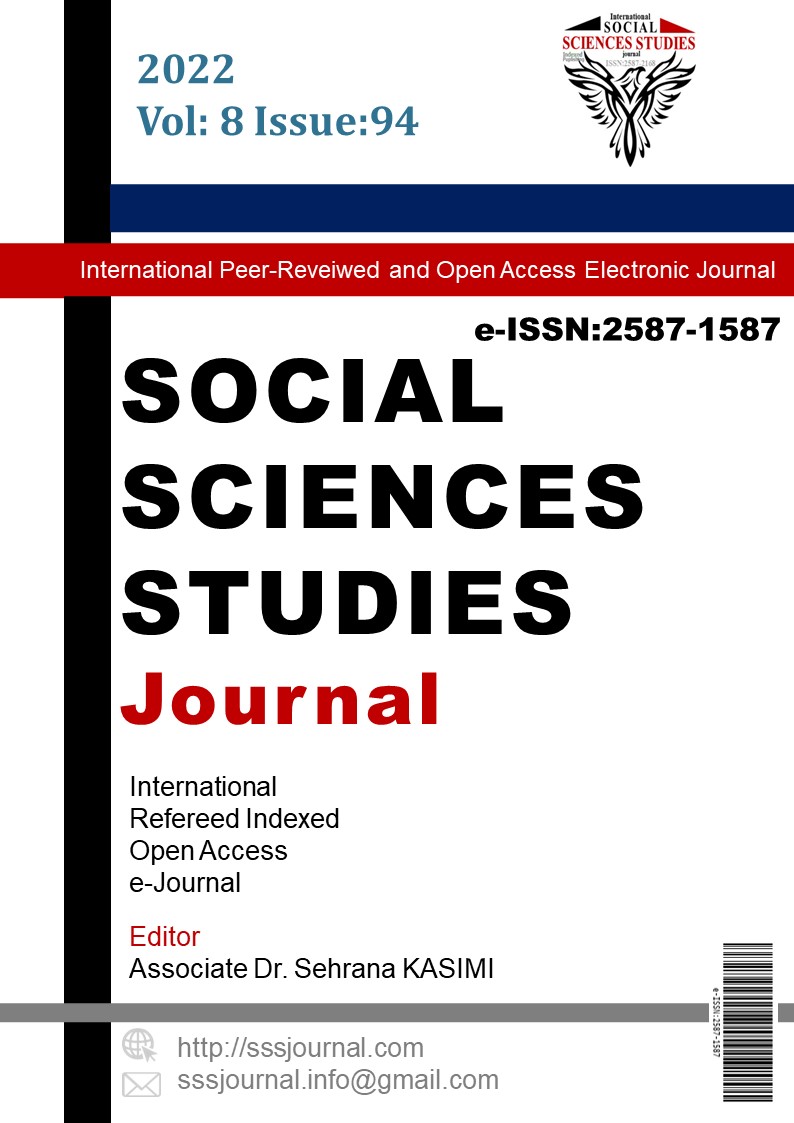Author :
Abstract
Sovyet Sosyalist Cumhuriyetler Birliği (SSCB) 20. yüzyılda hem kendi bünyesini oluşturan ülkelerde hem de tüm dünyada büyük etki yaratmıştır. SSCB, Materyalist Sosyalizm’in gerektirdiği şekilde, başlangıç aşamasında din ve dini faaliyetleri kontrol etme; dini kurum, ibadethane ve dernekleri sıkı denetim altında tutma; din ve din eğitimini devlet tekeline alma ve genç nesillere dinden arındırılmış laik eğitim verme; son aşamada da dinden arındırılmış bir komünist dünya yaratma politikasını uygulamaya koymuştur. İslam medeniyetinin önemli bir kolu olan ve 19. yüzyıldan itibaren Ortodoks Rus Çarlığı ve 20. yüzyılda SSCB denetimi altında kalan Orta Asya kolu da bu politikadan etkilenmiş ve Sovyet din politikaları ve devlet kontrolündeki din kurumlarıyla, dini eğitimden uzak kalmışlardır. Böylece bu ülkeler Sovyetlerin son dönemlerinde ve Sovyetler dağıldıktan sonra, dış kaynaklı radikal dini fikirlere açık hedefler haline gelmişlerdir. Radikalizm ne kadar Özbekistan, Tacikistan gibi belli ülkelerde yoğunlaşsa da tüm Orta Asya Bölgesi için çok büyük bir sorundur.
Keywords
Abstract
In the 20th century, the Union of Soviet Socialist Republics (USSR) had a great impact both in the countries that formed its own structure and in the world. As required by Materialist Socialism, the USSR had to control religion and religious activities at the initial stage; keeping religious institutions, places of worship and associations under strict control; monopolizing religion and religious education by the state and providing a secular education free from religion to the younger generations; as a final stage, it tried implemented the policy of creating a communist world free of religion. Central Asia, which was an important branch of Islamic civilization and under the control of Orthodox Russian Empire in the 19th century and the USSR in the 20th century, was also affected by this policy and remained away from religious education with Soviet religious policies and state-controlled religious institutions. Thus, these countries have become open targets for foreign radical religious ideas in the last period of the Soviet Union and after the Soviet collapse. No matter how much radicalism is concentrated in certain countries such as Uzbekistan and Tajikistan, it is a huge problem for the entire Central Asian Region.
Keywords
- Ağır, O., & Arpacı, I. (2019). Soğuk Savaş Sonrası Dönemde Ortaasya’da Dini Radikalizmin Nedenleri Üzerine.
- Ağır, O., & Arpacı, I. (2019). Soğuk Savaş Sonrası Dönemde Ortaasya’da Dini Radikalizmin Nedenleri Üzerine. Turkish Studies, 14(3):1023-1044
- Akimjan Kyzy, B. (2018). "Yeni Dini Akımların Orta Asya Gençliği Üzerindeki Etkileri ve Dini Eğitimin Rolü", Genç Vizyonlar Dergisi, 2(4):31-39.
- Alimi, E. Y., Demetriou, C., & Bosi, L. (2015). The Dynamics of Radicalization, Oxford University Press, New York.
- Arpacı, I. (2017). "Dini Radikalizmin Nedenlerini Tersinden Sorgulamak: Milli Görüş Neden Radikalleşmedi?", Turkish Studies, (12/8):11-28.
- Azizian, R. (2006). "Countering Islamic Radicalism in Central Asia", Connections, 5(4):93-106.
- Baran, Z., Starr, S. F., & Cornell, S. E. (2006). Islamic Radicalism in Central Asia and the Caucasus: Implications for the EU. Central Asia-Caucasus Institute & Silk Road Studies Program.
- Birdişli, F. (2017). "Orta Asya Bölgesel Güvenlik Kompleksi Bağlamında Kırgızistan-Özbekistan İhtilafı", Yönetim Bilimleri Dergisi, 15(30):123-143.
- Brown, B. (2013). "The Two Faces of Religious Radicalism: Orthodox Zealotryand “Holy Sinning” in Nineteenth- Century Hasidism in Hungary and Galicia", The Journal of Religion, 93(3): 341-374.
- Commins, D. (2015). "From Wahhabi to Salafi". (Ed. Bernard Haykel, Thomas Hegghammer ve Stéphane Lacroix), In Saudi Arabia in Transition: Insights on Social, Political, Economic and Religious Change. ss. 151-166,
- Çaman, E., & Dağcı, K. (2014). "Özbekistan’da İslam, Siyasi Sistem ve Radikalizm", Yalova Sosyal Bilimler Dergisi, (8):8-22.
- Çalışkan, İ. (2012). "Orta Asya'da Üç İslam Anlayışı". (Ed. Muhammet Savaş Kafkaslı), Orta Asya'da İslam: Temsilden Fobiye, ss.371-389, Ahmet Yesevi Üniversitesi, Ankara - Türkistan.
- Davletov, T. B. (2006). "Orta Asya'da Dini Ekstremizm Yaygınlaşabilir Mi?", Hacettepe Üniversitesi Türkiyat Araştırmaları (HÜTAD) Dergisi, (4):177-183.
- Demirci, L. (2012). "Özbekistan, Kırgızistan ve Tacikistan’ın Kesişimindeki Sorunlu Vadi: Fergana", Savunma Bilimleri Dergisi, 11(2):33-69.
- Kang, D. (2010). "Orta Asyada Radikal İslam Hareketi Ve Terörizm", Yüksek Lisans Tezi, Atılım Üniversitesi Sosyal Bilimler Enstitüsü, İstanbul.
- Kurum, M., & Avcı, E. (2018). "Radikalizm ve Aşırıcılıktan Terörizme: Siyasal Şiddetin Araçsallaştırılması", Güvenlik Sratejileri, 14(28):37-90.
- Marat, E. (2008). National Ideology and Statebuilding in Kyrgyzstan and Tajikistan, Silk Road Paper, Washington, DC.
- Neuman, P. (2013). "The Trouble With Radicalization", International Affairs, (89):873-874.Rashid, A. (2002). Jihad: The Rise of Militant Islam in Central Asia, Yale University Press.
- https://cisac.fsi.stanford.edu/mappingmilitants/profiles/islamic-movement-uzbekistan#text_block_19654 adresinden 15.11.2021 tarihinde alındı
- https://doc-research.org/2019/11/religious-radicalism-central-asia/ adresinden 12.11.2021 tarihinde alındı.
- https://www.hudson.org/research/9830-radical-islamists-in-central-asia adresinden 17.11.2021 tarihinde alındı https://libguides.lib.msu.edu/radicalism/definition adresinden 25.11.2021 tarihinde alındı.
- https://sgp.fas.org/crs/misc/RS21695.pdf adresinden 1.11.2021 tarihinde alındı.





